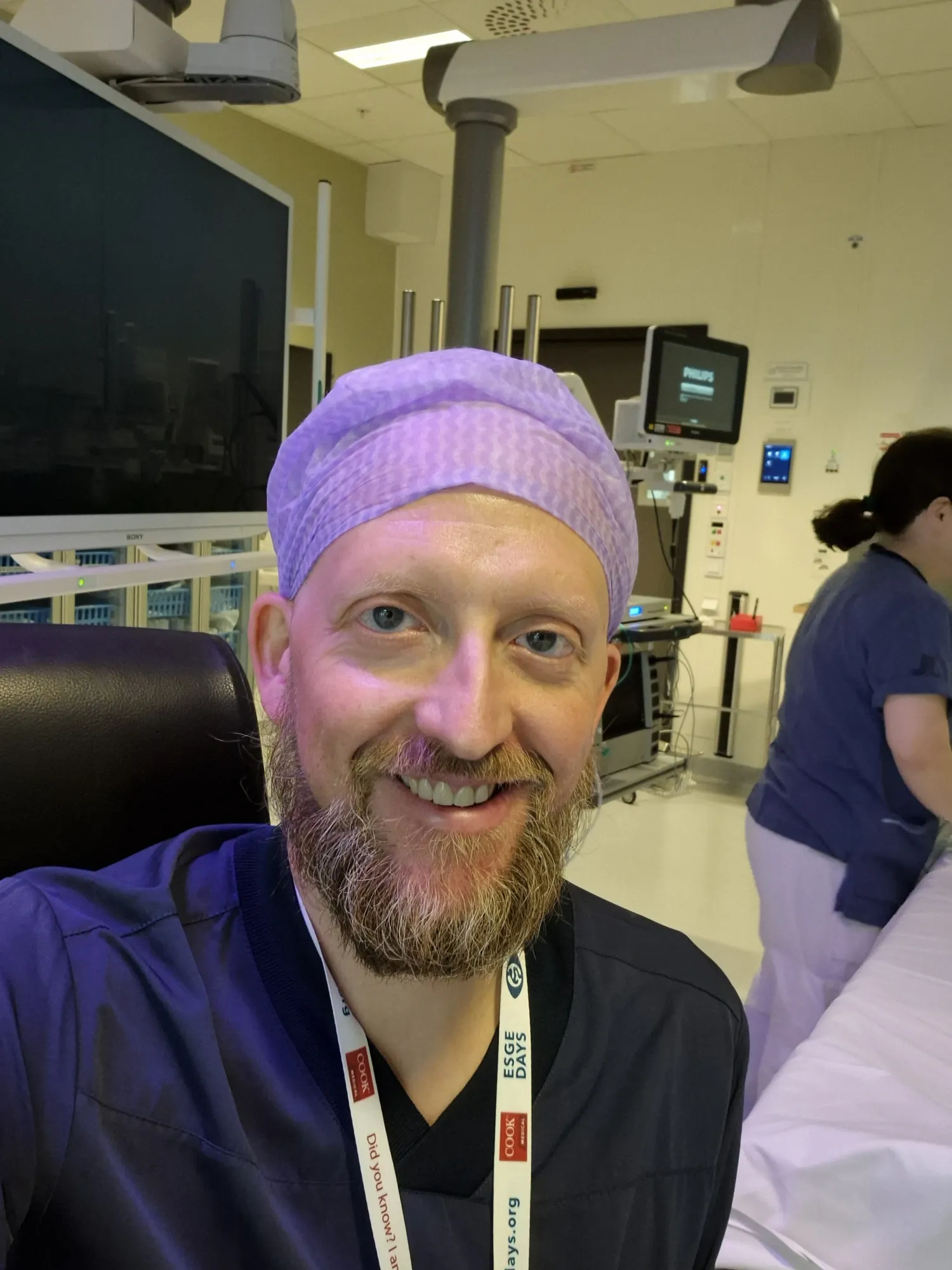New thesis on endoscopic retrograde cholangio-pancreatography (ERCP)

Alexander Waldthaler from the Gastroenterology and Nutrition Unit (GUT), at the Departmet of Medicine, Huddinge (MedH) is defending his thesis titled "Advanced techniques in ERCP", on 23 May, 2025. Main supervisor is Annika Bergquist (MedH).
What is the main focus of your thesis?
The focus of my thesis is to explore under-researched areas in the field of endoscopic retrograde cholangio-pancreatography (ERCP), which is a very common procedure used to treat hepatobiliary diseases. Two articles are about new radiological imaging techniques, namely cone beam computed tomography and image fusion, to improve visual assessment during ERCP. The third study used information from over 90.000 ERCPs performed in Sweden to describe the duration of different types of ERCPs and its single steps, and to generate the first tool to estimate the duration of the procedure. Finally, the fourth paper is about ERCP treatment of pain in patients with chronic pancreatitis using multiple plastic stents side by side instead of one.
Which are the most important results?
Cone beam computed tomography uses a higher radiation dose than conventional ERCPs in our retrospective setting, where we used it in selected cases that required especially good radiological assessment, and doses were within a reasonable and safe range. Low dose protocols can save much radiation and are clinically sufficient.
Image fusion for ERCP is feasible and can be helpful in pathologies around the liver hilum, where several ducts meet. It is less useful for ductal assessment outside the liver, at least in part because those anatomical structures are dislocated by the insertion of the endoscope, and also because there is less need for very exact view of those structures.
The Swedish estimation of ERCP time (SWEET) tool is the first of its kind and estimated the procedure duration with mean error of 17 minutes in the validation data. The duration of an ERCP is very variable and indications taking longest are chronic pancreatitis and primary sclerosing cholangitis. The SWEET tool aims to standardize estimation of procedure duration making it less dependent on expertise, and ideally more accurate.
Treatment of painful chronic pancreatitis with multiple plastic stents is safe and relatively effective, but in part, patients do not become pain free or suffer from pain receives, which is why surgery should be regarded as the best treatment option in those patients, if feasible.
How can this new knowledge contribute to the improvement of people’s health?
The SWEET tool could result in a more effective scheduling of this resource-intensive procedure. ERCP with pancreatic multistenting might be considered for selected patients that cannot be operated. Chances of further improvement decline after the fifth ERCP procedure and therefore, our data could help spare patients a perpetuation of this invasive treatment. Cone beam computed tomography and image fusion for ERCP have the potential to improve accuracy of assessment and reproducibility of pathology or biopsy locations, potentially leading to a better outcome of the procedure. In selected procedures, the total radiation dose might even be reduced by these advanced imaging techniques.
What are your future ambitions?
I want to continue to explore cutting edge endoscopic interventions and combining imaging modalities. Currently, the field with most advances is the implementation of endoscopic ultrasound in the field of upper GI diseases, for example in pancreato-biliary drainage and gastric outlet obstruction. I hope we can overcome the deficit Sweden has in the use of ultrasound-based techniques and take part in prospective multicenter studies in this area. Furthermore, I want to continue my work in the improvement of x-ray techniques with our partner x-ray manufacturer and I would like to broaden my clinical skills with endoscopic submucosal dissection.
Dissertation
Friday, 23 May at 09:00, Gene in Neo, Blickagången 16, Flemingsberg.
